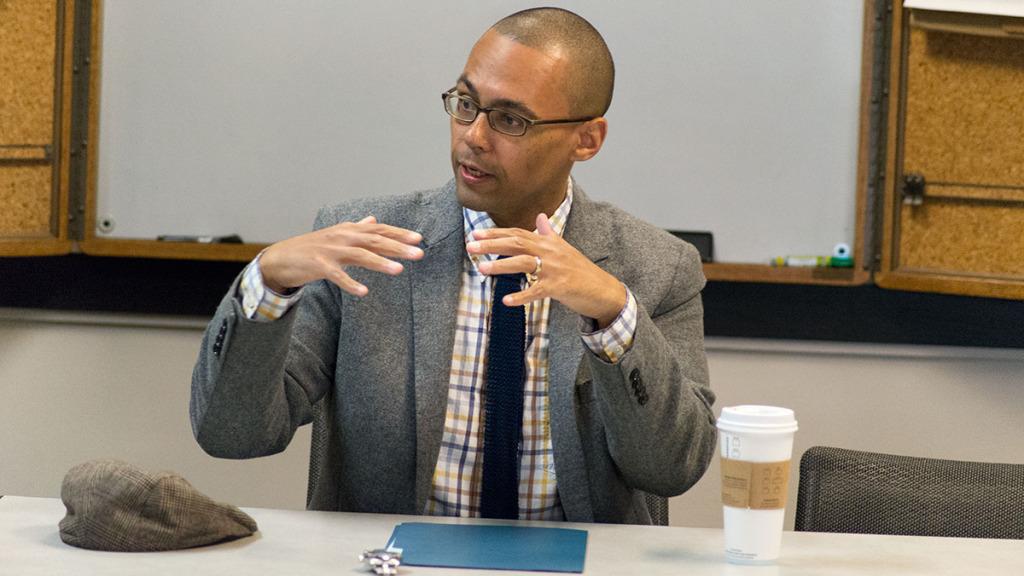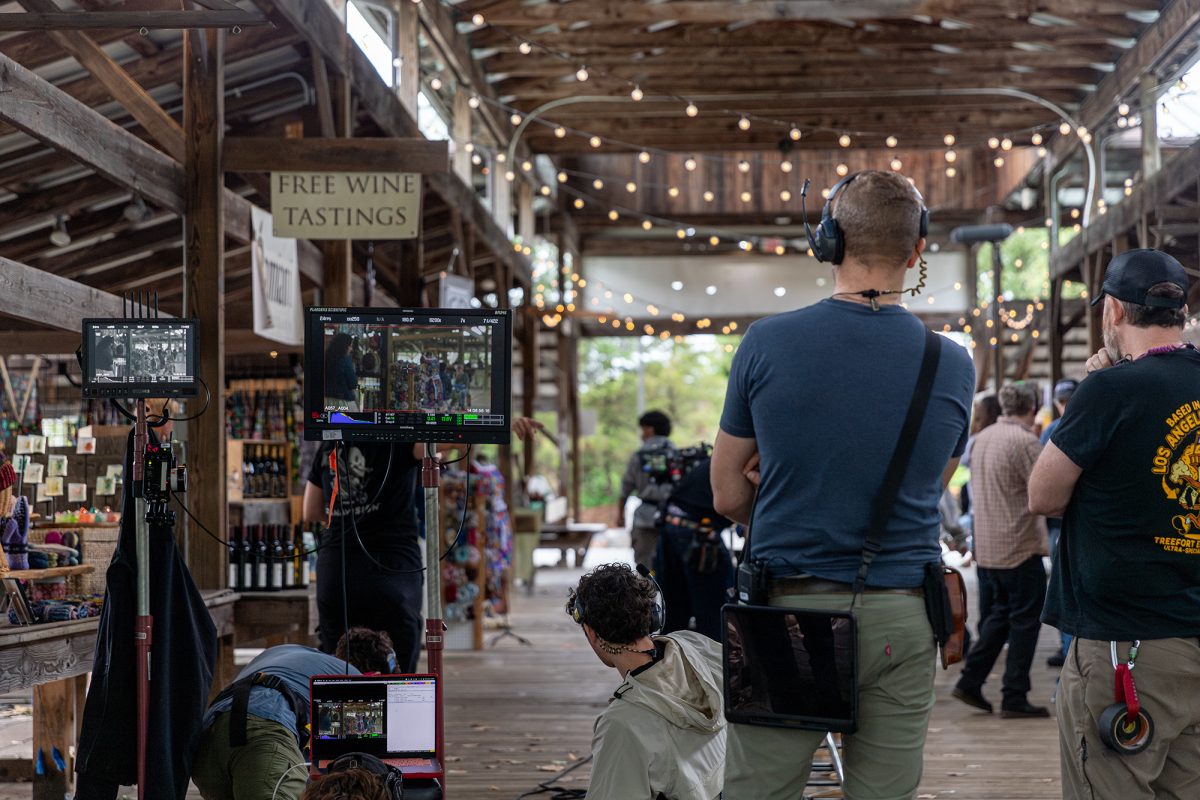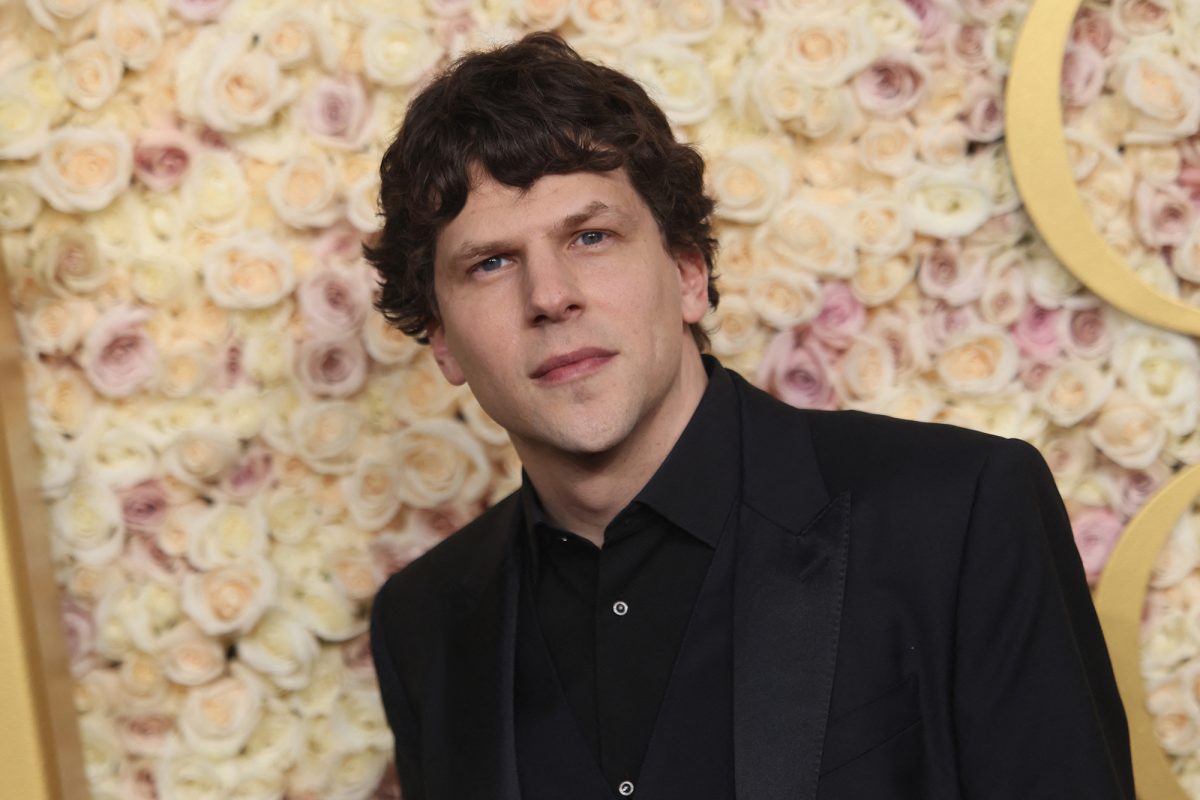On Nov. 12, author and Columbia University professor Victor LaValle joined students and faculty in the Klingenstein Lounge to read from his most recent novel, “The Devil In Silver.” LaValle also held a writer’s workshop before his reading.
LaValle’s body of work is critically acclaimed, and he was named a Guggenheim Fellow in 2011. Assistant Life & Culture Editor Steven Pirani spoke with Lavelle to talk about monsters, mental illness and why talent isn’t the secret to writing.
Steven Pirani: Let’s start with “The Devil in Silver,” which you’ll be reading from. The novel, along with other novels you have written, touches on themes of mental illness. What is it that draws you to this topic?
Victor LaValle: Well, I just have generations of family members who have suffered from mental illness. And they are people who I knew, and loved and had hard times with, and all this, but I knew them as complicated people, and in the end lovable people. Generally speaking, the portrait of mentally ill people is, at best, crackpots, and at worst, dangerous. I often come back to that and want to write about the kinds of people we usually ignore or are afraid of, and one of those groups are definitely the mentally ill.
SP: So is your goal in these novels not only to delve into mental illness, but to change the way readers look at the mentally ill?
VL: The best reactions I get are people who are readers who come up to me and say, “You know, I never really dealt with anyone who was mentally ill, but after I read your book, that guy I saw on the corner who looked like he was homeless, or that woman who seemed a little bit off — when I looked at them, I thought of the characters in your book, and I thought of them as human.” Whenever they’ve said that to me, I’ve felt like you couldn’t pay me a higher compliment.
SP: That is incredibly rewarding, is it not?
VL: I have to say, I got into this because I’m a reading dork. I’m just a guy who loves reading, and the idea of writing was just to continue and tell the stories I loved reading as I was growing up. But as a secondary thing, when someone says something like that, it is definitely a gift.
SP: You’ve mentioned your love for Godzilla and other monsters, and they take a role in your writing. What attracts you to monsters?
VL: I grew up in a household that was a little bit chaotic and frightening at times. So for me, as a little kid, I could be very surprised by the ways people I knew and loved were acting. They seemed like different people at different times, and I could be very scared by that. So to me, the idea of a creature who breaks into people’s homes and just kills everybody didn’t seem that strange to me. Or a monster, that comes up from the Earth and just destroys everything, and then just goes on his way, struck me — and obviously, I never thought that was really what life was like — as what life could be like.
SP: And why do you think people are so attracted to the dark and the bizarre and the monsters?
VL: To be fair, there are some people who are not attracted to monsters, and those are maybe the same people who don’t love roller coasters. Some people do not like to be scared, and that’s OK. We try our best to make our lives run in an orderly way, we try our best to be good to people — hopefully. Nonetheless, there are times when the outside world makes you feel like you are being attacked, or sometimes you have ugly feelings that are really powerful, and monsters sort of bypass all the cultural rules about what’s right and what’s good and what’s orderly — sometimes a monster just destroys Toyko, and that’s what the day feels like.
SP: This may be the most cookie-cutter question I have in my repertoire, but here goes: For the writers who may look up to writers like you, what is “the secret?”
VL: Well, it’s definitely not talent. It’s just not. It’s perseverance, I swear to you. And that’s its own cookie-cutter response. Every writer, if you just keep writing, keep writing, keep writing, you’ll at least become a better writer, if not rich and ridiculously famous.














